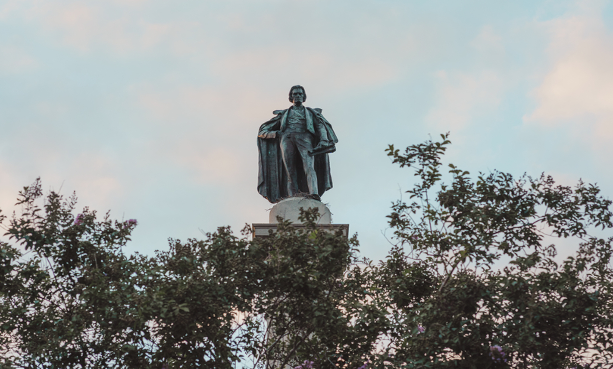CommentsOTHER WORDS-The Conservative Political Action Conference’s annual theme this year was “America Uncanceled.”
The conference was light on policy and heavy on grievance. One New York Times reporter said it was a clear sign that “Trumpism is replacing conservatism” in the GOP. But in a lot of ways the “uncanceled” theme fit right in with currents that have defined the movement for decades.
Conservatives like to advocate for “individual freedom,” but they don’t mean it in the way you might think.
They mean the freedom of one individual to harm or gain unearned advantage over another (for example, by Hobby Lobby refusing to cover birth control for employees) or preserving the freedom to benefit from society without giving back (for example, large corporations that benefit from taxpayer-funded services but pay little to nothing in taxes).
In her book Democracy in Chains, historian Nancy MacLean traces many conservative ideas to an economist named James Buchanan, who developed his ideas in opposition to the civil rights and anti-Vietnam War movements.
Buchanan attended graduate school in Chicago, moved to Virginia during the civil rights movement, and went to UCLA when Ronald Reagan governed California. In short, he was well positioned to influence — and be influenced by — other major far right figures, including Charles Koch.
Opposed to school integration, Buchanan found inspiration in Senator John C. Calhoun’s arguments in favor of slavery a century earlier. Calhoun thought it was a violation of property rights for the state to free an enslaved person.
Buchanan extended that argument. He claimed it was tyranny if the state forced a white family to send their children to school with black students against their will, or if the state taxed people to pay for programs they did not wish to support.
CPAC’s “uncanceled” theme represents the extension of this logic. Conservatives’ rage against “cancel culture” boils down the idea that people should be allowed to behave as abusively to one another as they wish, and any limitation on that — or even criticism of it — is an infringement on freedom.
Buchanan and his collaborators openly referred to their project as radical, but they cloaked it in banality as best they could in order to attract mainstream support. They omitted racial language while crafting justifications to legalize de facto racial discrimination.
Buchanan advocated steep college tuition, for example. This presents obvious equity issues, but Buchanan also intended it to prevent student civil rights and anti-war protests by forcing students to devote all of their time to work and studying.
But instead of arguing that in public, he tried to justify it in terms of rational economic self-interest.
Whatever the intent of people who currently subscribe to these beliefs, their original formulation was inextricably linked to defending the rights of the powerful to exploit the marginalized. They called for “states’ rights” because the powerful are most effective at defending their interests at the state level.
However, people do not operate based on rational individual self-interest alone. Elinor Ostrom proved that. She found humans are capable of recognizing opportunities to gain more as a group through shared sacrifice together and organizing to carry it out. They can do this through communication, establishing laws and norms, reciprocity, and trust.
Democracy provides us with a way to rule according to the will of a people with diverse, conflicting interests. It’s heavily flawed but, as Frank M. Bryan said in his book Real Democracy, it’s better than any other option.
Redefining freedom as allowing individuals freedom to harm others, claim unfair advantage, or refuse to contribute to society in proportion to how much they benefit from it detracts from the freedom of everyone else to avoid harm — and share equally in opportunities and responsibilities within our society.
(OtherWords columnist Jill Richardson is pursuing a PhD in sociology at the University of Wisconsin-Madison. This op-ed was distributed by OtherWords.org.) Photo: A statue of the pro-slavery senator John C. Calhoun in Charleston, South Carolina (Shutterstock). Prepped for CityWatch by Linda Abrams.














